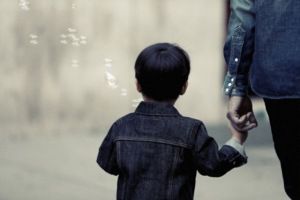News
Danish parents forced to pay child support for abducted kids
This article is more than 8 years old.
Parties up in arms over Danes having to pay child support to abductors in other countries

Caught in the middle (photo: Pixabay)
As it currently stands, a parent of a child abducted from Denmark by their former partner, who lives in another country, can be forced to pay child allowance.
Now several Danish parties, including Dansk Folkeparti (DF) and Socialdemokratiet, want to amend the European Hague Convention so that it better protects the parents of abducted children.
“It’s completely unacceptable,” Pernille Rosenkrantz-Theil, the spokesperson regarding social issues for Socialdemokratiet, told Jyllands-Posten newspaper.
“A parent of an abducted child – whose parental rights are protected by Danish law – should never be in a position where they are ordered by a foreign court to pay child support. It’s simply won’t do.”
DF says the current practice “benefits the criminal” and contends it is another incentive for a parent who is considering taking their child and fleeing abroad.
READ MORE: Majority of Danes approve of sanctions for parents who do not vaccinate their children
Money follows the kid
The parties have asked the children’s and social minister, Mai Mercado, to look into amending the Hague Convention, but the minister has refused to comment as she is currently working towards Parliament signing off on a 2007 version of the Hague Convention – a version that does not include an amendment of the practice.
As it currently stands, the money follows the child, according to Caroline Adolphsen, an associate professor of family law at Aarhus University.
If the child is in a country that is part of the EU or the Hague Convention from 1973, Denmark recognises the foreign verdict concerning child support.
“Legally, it doesn’t matter whether the child has been abducted by its parent. The child support must ensure the child’s welfare, so they don’t go to bed hungry, for instance,” Adolphsen told Jyllands-Posten.
“The child can’t help being abducted, so if you look at it from a child’s perspective, they would be wronged twice if you also punished them financially.”










































